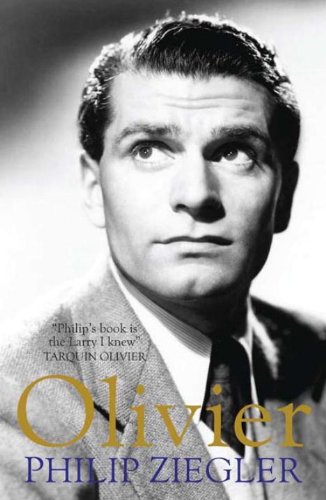
My impression of Sir Laurence Olivier is a sort of vague one of him playing Heathcliff in Wuthering Heights, or declaiming Shakespeare effortlessly. Either that or I associate him with Vivien Leigh, to whom he was married for several years.
Beyond that, I have a vague notion of theatrical greatness and, of course, legendary film performances.
Olivier, by Philip Ziegler, goes behind those somewhat broad notions to dig into the man himself, and it’s very interesting reading.
Ziegler has a nice knack of saying just enough about a stage of Olivier’s life to keep you reading and engaged, but not so much that you find yourself getting bored or irritated with the subject matter.
He explores Olivier’s early days thoroughly but fairly quickly, understanding that the reader will be wanting to get to the good stuff: ie, when Olivier starts making movies, and when he marries Leigh. And he doesn’t disappoint.
The book moves on from Olivier’s early life to the great man’s first forays into the world of the theatre, films, and ultimately, running the National Theatre. It presents a man who was almost always at the height of his talents, even when his personal life was a bit more than chaotic – his marriage to Leigh, for example, was marred heavily by her undiagnosed bipolar disorder.
Ziegler clearly loves his subject matter but that doesn’t prevent him from being critical of Olivier when the occasion calls for it, and it’s that balance that makes Olivier a fascinating and absorbing biography of one of the acting giants of the 20th century.
One for fans of Olivier, theatre history and film history.
